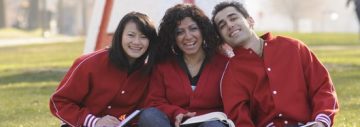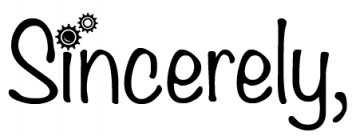2nd Year Placement
What should I write on my personal statement and other FAQs
2nd year placement, the process by which first-year engineering students are placed in discipline-specific engineering programs for the remainder of their BASc degree, opens in March and closes in May. It’s a reflective process that Engineering students will engage with and while there is already lots of information and resources on 2nd year placement, it can also be confusing and it requires time for students to consider how they will rank the 15 programs.
First of all, 2nd year placement is a competitive process. Your grades matter, as a first priority, to the final program you will be placed in. Additionally, you will be compared against a ranking system with multiple considerations such as the competitive average for admission, the number of seats available for that program, the popularity of the program in a given year and your personal statement (more on this later).
Hopefully, this article helps explain some of the commonly asked questions and myths about 2nd year placement.

Martin Dee / UBC Brand & Marketing
What grade(s) do I need to get into X program?
This is always a hard question to answer as an advisor because “it depends”. There are many factors involved in determining what this year’s GPA cutoff will be for a certain program: the popularity of the program that year, the GPA range across the first year cohort, the strength of your personal statement and the number of seats a program can offer. Because these factors fluctuate from year to year, it becomes unrealistic for us to give students a specific GPA that guarantees placement in any one particular program. We do however, encourage students to maintain a high GPA for more competitive programs. During your APSC 100/101 course, a graph with the four-year historical entry GPA’s is posted in Canvas which you can use as a reference. It provides you with a fairly accurate idea of what a competitive GPA would be for the various programs.
The popularity of a program can fluctuate greatly with societal and career trends. For example, Integrated Engineering and Computer Engineering are both programs that have become more and more popular from 2017-2020, which increases their competitiveness. But don’t fret if you feel your GPA isn’t there yet after seeing your first term grades. You still have time to adjust your habits and move forward.
Jamil Rhajiak / UBC Brand & Marketing
Another recommended step is to invest time into preparing your application. This requires research, reflection and writing a strong personal statement. While the majority of the decision will be based on grades, the personal statement can be reviewed by your first-choice program and may help set you apart from a pool of qualified applicants or give programs additional insight as to who you are.
Keep in mind that some programs require further action beyond submitting your program ranking and personal statement. For example, Engineering Physics requires an interview (or a video submission for Winter 2020) and Mechanical Engineering’s MECH 2 program requires certain 1st year courses to be completed by August 1st, which means Term 1 of Summer, at the latest.
Always check with the departmental website and our page on 2nd year placement!
What should I write on my personal statement?
You will have a maximum of 500 words to address your first–choice program.
Most students choose to write about their interest in the program, their skills and experiences (both academic and outside of the classroom) as well as any other information they would like the program to consider. If you faced any extenuating circumstances that you feel may have significantly affected your grades, you’ll have an opportunity to briefly share this as well.

Martin Dee / UBC Brand & Marketing
It’s important to explain not only why you would like to be placed into the program, but also why the program should consider accepting your application. What makes you a great candidate for them? What characteristics and skills are you bringing to them and to your potential future classmates?
Show, not tell.
Anyone can say they have positive characteristics. However, it is so much more impactful when your personal statement can illustrate the experiences and achievements that back that story up. Don’t discount your unique experiences and projects. Rather, focus on reflecting and highlighting what you have learned to show insight into the thought process behind your actions.
For example:
I was always interested in computer engineering and coding since I was younger and I’m even more interested now.
vs.
My growing interest in computer engineering stems from a high school coding project that evolved into a continued pastime hobby and passion.

Martin Dee / UBC Brand & Marketing
Remember that different programs may look for different qualities. Show up to program fairs, talk to peers and ask questions to program representatives during APSC 100/101 to gain more information and a good understanding of what the program is looking for.
The Centre for Writing and Scholarly Communication offers additional writing resources, workshops and consultations to help you prepare a strong personal statement.
It’s a great idea to start planning and thinking about 2nd year placement as early as possible, as it can be an important process that shapes your next few years of study. If you still have questions about 2nd year placement, feel free to book an appointment with an academic advisor.

Mio Tomisawa
Associate Academic Advisor
Posted on: April 8, 2021

